The warm-up races are done, new national champions have been crowned, and all is now in readiness. The 2017 Tour de France is just days away. Ahead of the 104th edition of the world’s biggest race we take a look at the route, the key stages, the riders to watch, and how you can follow the race.
The race starts in Germany, and passes through Belgium and Luxembourg on its way to France.
Learn all about the Tour de France, including how the race is won, the points are earned and what the jerseys mean in our Guide to the Tour de France
The 2017 Tour de France starts with a 14km individual time trial in the German city of Dusseldorf. Stage 2 sees the race head into Belgium, with a stage finish in Liege, while stage 3 starts in Verviers, Belgium, passes through Luxembourg and finishes in France. Stage 4 starts in Luxembourg before heading back into France where it remains for the rest of its 21 stages.
Rather than taking in a clockwise or anti-clockwise loop of France, this year’s route is a little different. After a brief visit to the Alps, the Tour heads west then south towards the Pyrenees, before skirting east to hit the Alps again in the final week.
The penultimate stage is an individual time trial in Marseille, on France’s south-east coast, before a long overnight transfer to Paris for the traditional Champs-Elysees finish.

It’s the first edition of the Tour de France since 1992 that will feature all five of France’s mountain ranges. In all the riders will cover 3,540km over the Tour’s 21 stages.
There are perhaps six key stages for the GC
When it comes to the battle for overall honours at this year’s Tour, there are a handful of stages that should prove decisive. Stage 5 could well be the first test, thanks to the 5.9km stage-ending ascent to La Planche des Belles Filles, which averages 8.5% but is much steeper at the end. Stage 9 is likely to be an important stage, thanks to plenty of climbing and the Mont du Chat climb in particular.
Used in the Criterium du Dauphine just a couple weeks back, this super-steep climb (8.7km at 10.3%) tore the race apart. The same is likely to happen at the Tour. The descent, too, could have an impact, with its many twists and turns on a very narrow road. The finish is in Chambery, a little further from the bottom of the descent than it was in the Dauphine. A stage to watch for sure.
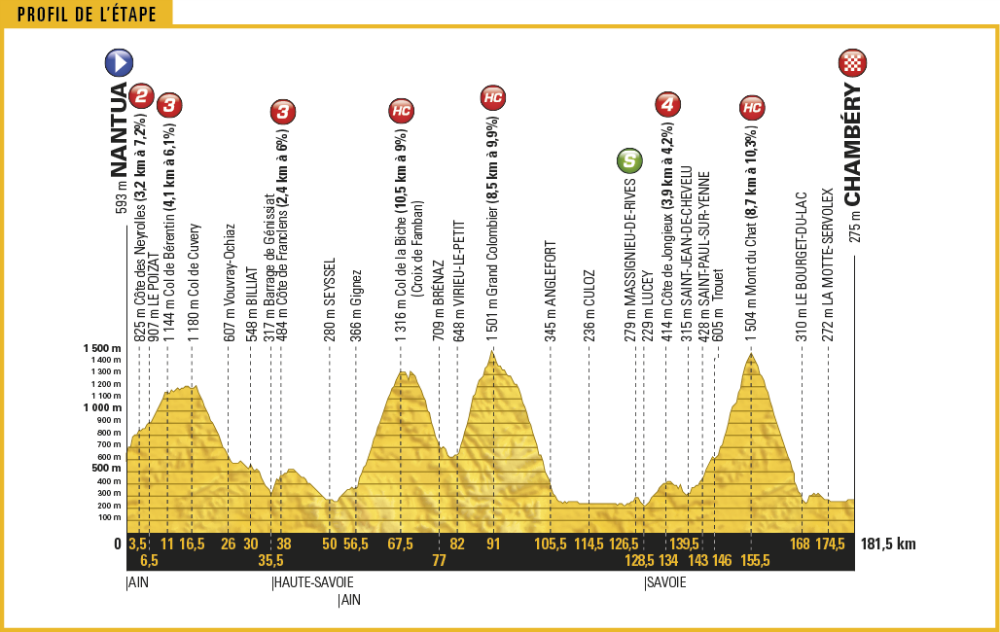
Stage 12 is a very challenging ride through the Pyrenees with six categorised climbs and an uphill finish to Peyragudes. Stage 17 has four climbs including the Col de la Croix de Fer, Col du Telegraphe and the Col du Galibier (the highest point of race). From the top of that final climb it’s 28km downhill to the finish in Serre-Chevalier.
Stage 18 features three climbs, two of them quite lengthy, including the stage-ending Col d’Izoard which is 14.1km at 7.3%. Finally, the stage 20 time trial, while largely flat, could create some time gaps which, depending on how the leaderboard looks, could decide the race overall.
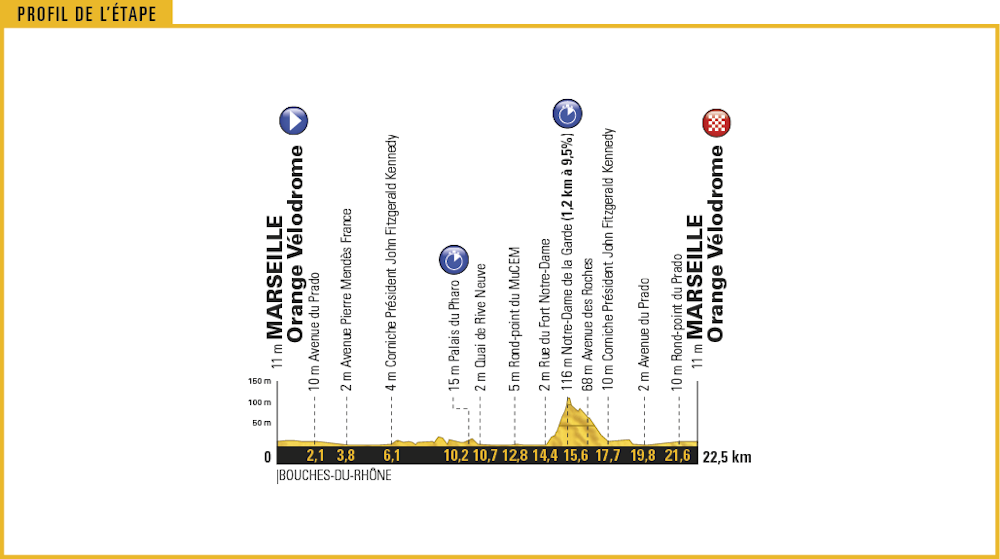
Of course, time gaps are possible on just about every stage, such is the unpredictability of bike racing. But if you’ve only got time to watch a few stages of this year’s race, we’d recommend the six mentioned above.
There are arguably three five-star favourites for the race overall
You could argue that, on paper, Richie Porte (BMC) is the man to beat at this year’s Tour de France. He’s had a stellar lead-up, winning the Tour Down Under (including two uphill finishes), the Tour de Romandie, a mountain-top finish at Paris-Nice, and he finished second at the Criterium du Dauphine.
Porte was leading into the final stage of the Dauphine and while he was ultimately beaten by Jakob Fuglsang (Astana), Porte’s tenacious performance throughout the race, especially on the final stage, puts him in good stead. The Tasmanian was isolated at the Dauphine, but believes he’ll have more support at the Tour.
He climbs very well, his time-trialling is excellent (he won the Dauphine ITT). Perhaps Porte’s two biggest weaknesses are his descending (Froome has taken time on him in several big races) and the way he seems to attract bad luck. He had an ill-timed puncture on stage 2 of last year’s Tour which cost him minutes. It’s likely he would have finished on the overall podium were it not for that incident.
“I think I need to avoid the bad luck I had last year”, Porte said when asked by CyclingTips what the key will be for him at this year’s race. Hopefully he can do so and we can see what Porte is truly capable of over three weeks.

Chris Froome (Sky) hasn’t had the best season so far. In fact, it’s the first time since 2012 that he’ll start the Tour de France without a win for the season. Froome finished third at the Dauphine, a race he won before all three of his Tour de France victories so far.
But while Froome hasn’t been at his best in 2017, he certainly shouldn’t be written off. His season is built around the Tour, he knows how to win the race, and you can bet he’ll be doing everything to try and secure win #4. And as Froome showed last year with some terrific descending and an unlikely late breakaway on a flat stage, he’s not afraid to think outside the box when it comes to taking time on his rivals.
Discount Chris Froome at your peril.

Nairo Quintana (Movistar) made it clear earlier this year that he was targetting the Giro d’Italia-Tour de France double, with the goal of winning both. He fell short of the first, finishing second to Tom Dumoulin, but the Colombian is a big chance at the Tour.
Quintana has had a good year, with overall wins at the Volta a la Valenciana and Tirreno-Adriatico, including a summit finish win at the latter. In addition to his second overall at the Giro he also won a stage in the mountains. Expect Quintana to feature heavily when the road tilts upwards.
Of particular note is Quintana’s Spanish teammate Alejandro Valverde. More than capable of racing for the overall himself – he was sixth last year — Valverde has said he’s all-in to support Quintana. Few of the GC contenders have such a strong lieutenant as Quintana and you can expect Valverde to finish inside the top 10 again assuming nothing goes hugely wrong.
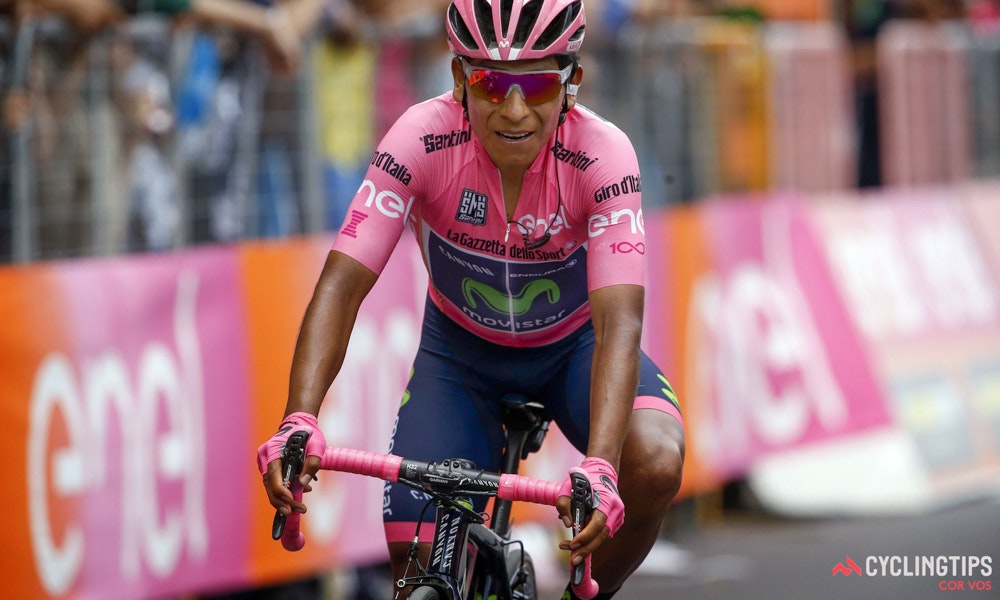
There’s an impressive list of contenders for the top 5 and the top 10
His best might be a few years behind him, but Alberto Contador (Trek-Segafredo) needs to be respected in any Grand Tour he starts. The Spaniard has won the Tour twice before and with a total of of seven Grand Tours to his name, he knows how to race over three weeks.
Contador was second at no fewer than four stage races this year, including Paris-Nice where he put in a phenomenal last-stage performance, attacking from a long way out to try and take the overall win. It’s this fight that makes Contador such a dangerous prospect. Sure, he was off the pace at the Dauphine, but few of the other GC contenders will be willing to give Contador any latitude at the Tour.
It’s worth remembering that Contador has Bauke Mollema for support too. The Dutchman was sitting second overall for six stages of last year’s Tour, before he fell out of contention on stage 19. Mollema is more than capable of a good overall finish himself — he’s been inside the top 10 three times — and will be an important helper for Contador.

Jakob Fuglsang was the big winner at the recent Criterium du Dauphine, claiming two stages and the overall. On the last stage, the Dane was in third, 1:15 behind Porte, but took the opportunity presented to him, rode away from Porte and then the rest of the field to take a memorable win. Worth noting: Fugslang didn’t lose any time to Porte on the race’s final climb with the latter in hot pursuit.
It’s hard to see Fugslang winning the Tour overall. His best GC performance was seventh in 2013 and while he’s on another level now, the riders ahead of him will likely prove too strong over three weeks. Note though that Fugslang is just one of two very strong options for Astana at this year’s Tour …
Fabio Aru has had an interrupted 2017 season with a knee injury forcing him out of the Giro. But the Sardinian has shown impressive form since returning to racing. He was good at the Dauphine, often climbing with the best, and won the Italian road nationals last week with a late solo move. Between he and Fugslang, Astana have some very good cards to play.
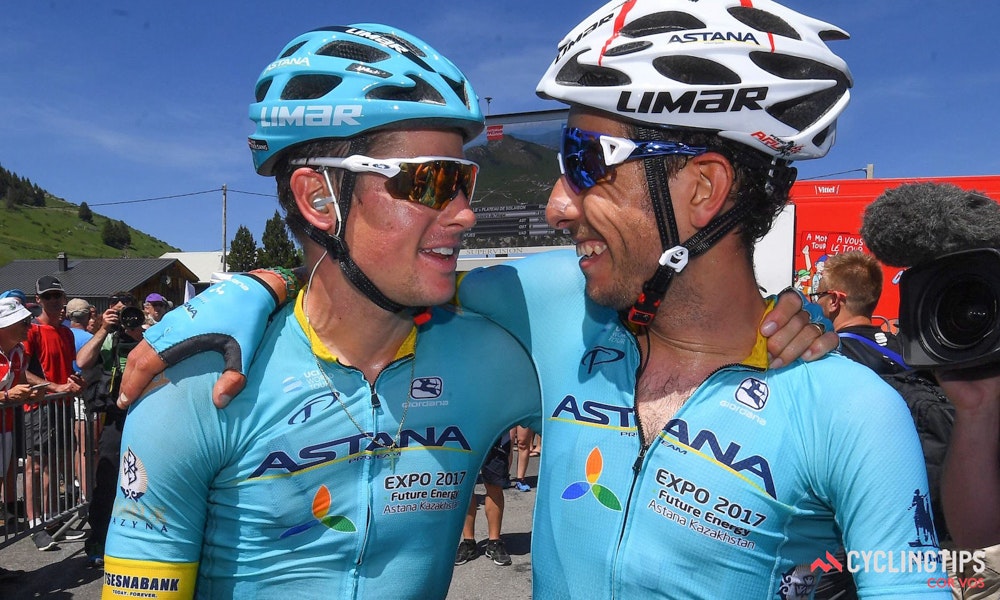
French hopes rest on the shoulders of two strong prospects at this year’s race: Thibaut Pinot (FDJ) and Romain Bardet (Ag2r-La Mondiale). Pinot has had an impressive season, courtesy of a stage win at the Ruta del Sol, a stage at the Tour of the Alps and second overall, third overall at Tirreno-Adriatico, and a stage win and fourth overall at the Giro d’Italia. Pinot’s best finish at the Tour was his third overall in the 2014 Tour and while he’ll be hard pressed to replicate or improve on that this year, he should feature in the battle for the top five.
Romain Bardet, too, will find it difficult to match his best Tour performance — second overall last year. He’s had a winless start to the year and his best stage-race finish was sixth at the recent Dauphine. It’s worth noting that Bardet also didn’t take a win before last year’s Tour, but he was second at the Dauphine that time.
Bardet should feature high up on the general classification and is a good prospect of another stage win. He hit the winners’ list in 2015 and 2016 and will be looking to the hard hilly stages to add to those victories.
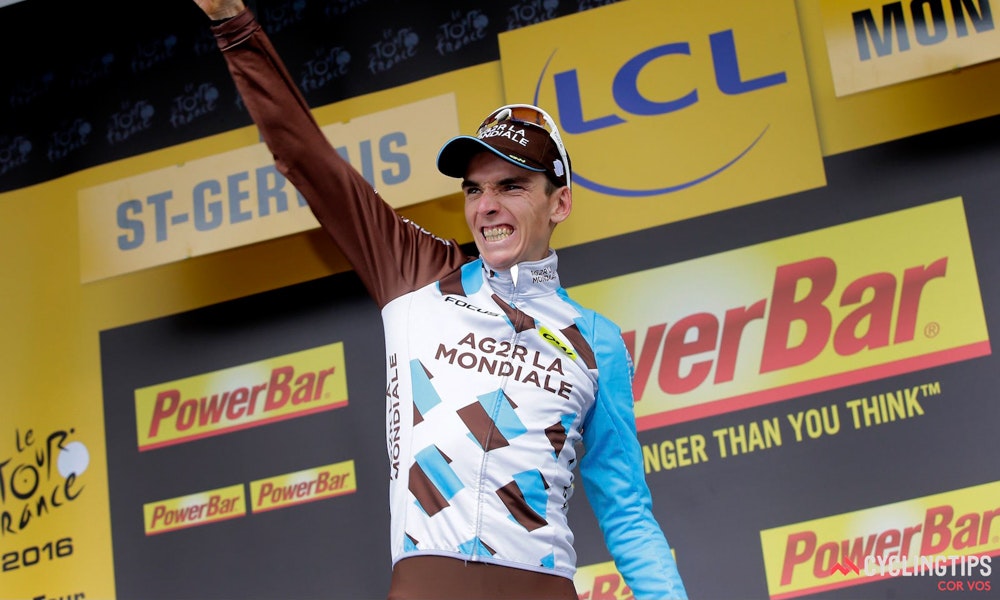
Orica-Scott has turned itself into a GC team in recent years, thanks to Esteban Chaves and the Yates twins. At the 2017 Tour it will be Chaves and Simon Yates that lead the charge.
Chaves is a real unknown — he didn’t race between the Jayco Herald Sun Tour in February and the Dauphine due to a knee injury, and was well off the pace at the latter event. Simon Yates has had a better season with a stage win at Paris-Nice, victory at GP Miguel Indurain, a stage of Romandie and second overall before finishing 13th at the Dauphine. Yates will be aiming for the white jersey and top 10 overall, both of which seem very achievable.
There are at least eight stages for the sprinters
No race attracts as many good sprinters as the Tour de France and this year’s race provides plenty of opportunities for the fastmen. It’s hard to pick an outright favourite for the sprints, but on paper it’s probably Marcel Kittel (QuickStep Floors).
Kittel has nine wins for the year, the most of any sprinter, and has hit the line first in a stage of five of the six stage races he’s done. He’s a nine-time stage winner at the Tour de France and will be disappointed not to win at least one in 2017. He’ll have a hard time replicating the feat of his younger teammate Fernando Gaviria at the Giro, though, with Gaviria snagging four stages.
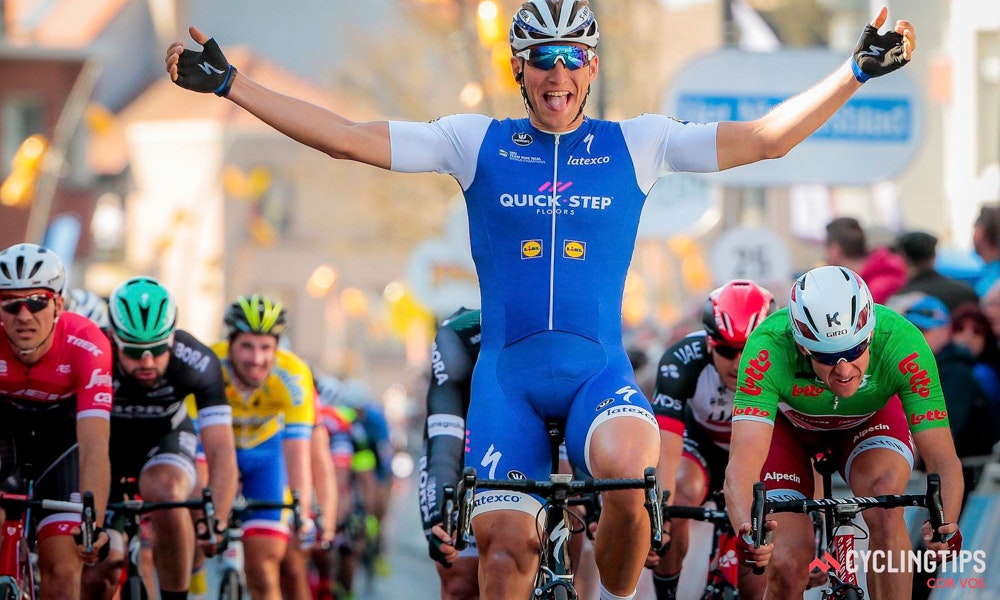
Andre Greipel (Lotto Soudal) has won a stage of the Tour every year since 2011 and certainly won’t want to see that streak end. He’s taken wins at Paris-Nice and the Giro this year, but has arguably been a little off his explosive best. Still, Greipel should win a stage again in 2017.
World champion Peter Sagan (Bora-Hansgrohe) will be one of the must-watch riders at this year’s Tour, as he is in every race he starts. Not only will the Slovakian be a factor in the flat sprints, he’s also a big chance in the hard uphill sprints, and the unbackable favourite for the points classification.
Sagan has won the green jersey for the past five years and were he to win it this year, he would equal the record held by Erik Zabel, who won green every year from 1996 to 2001.
Sagan has had a good start to 2017 with two stage wins at Tirreno-Adriatico, one at the Amgen Tour of California, and, most recently, two at the Tour de Suisse. He won three stages at last year’s Tour and is more than capable of doing the same again in 2017.
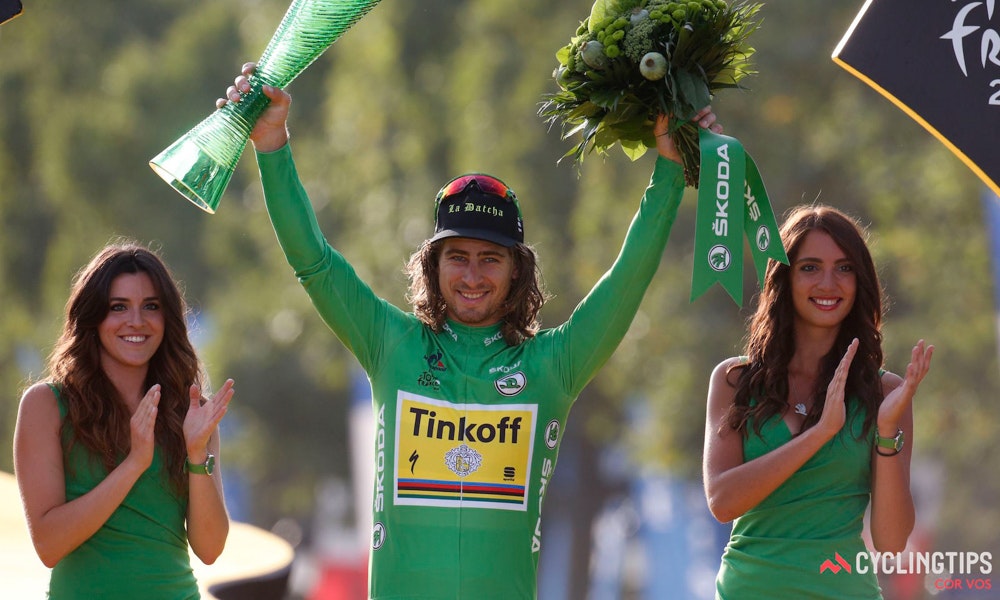
It’s hard to see anyone beating Sagan for the green jersey in 2017.
Despite being discounted by many, Mark Cavendish (Dimension Data) dominated the sprints at last year’s Tour, winning a very impressive four stages. This year he’ll be ecstatic if he wins just one — he’s had Epstein-Barr Virus this season and missed three months of racing. He managed to surprise himself by taking a second place at his return race, the Tour of Slovenia, and while the Tour is several levels harder than that, don’t be surprised if the wily Manxman finds a way to take a stage win.
Arnaud Demare (FDJ) won his second French road title last weekend and brings strong form into the Tour. He’s yet to win a stage of his home Grand Tour, but with eight wins for the year, including a stage win at the Dauphine, this might be his best chance yet.
Nacer Bouhanni (Cofidis) is another Frenchman still searching for his first Tour de France stage victory. After missing last year’s race due to injuries sustained in a fight, Bouhanni will be desperate to make the most of his opportunity in 2017 and add to the four wins he has so far this year.
Alexander Kristoff has publicly acknowledged that he’s not particularly happy at Katusha-Alpecin at the moment, and his performance seems to have suffered a little. He’s had a solid six wins for the year, but hasn’t looked at his world-beating best. Still: one to watch in the sprints for sure.

Kristoff last won a stage of the Tour in 2014.
Michael Matthews (Sunweb) broke his Tour de France drought last year and will be hoping to add to that victory in 2017. Matthews has just two wins in 2017 — one at Vuelta al Pais Vasco and one at the Tour de Suisse — but the recency of the latter will give him confidence coming into the Tour.
The stage-hunters will have plenty of opportunities
In between the sprint stages and the days suited to the GC men, there are a bunch of stages that will suit those who can get into and win from the breakaway.
Steve Cummings (Dimension Data) broke several bones in a crash at the Vuelta al Pais Vasco earlier this year but had the perfect return to racing last weekend with wins in both the time trial and road race at the British national championships. Cummings is a master of the late escape and has won a stage at each of the last two Tours. It would be no surprise to see him take another this year.
Rafal Majka (Bora-Hansgrohe) is a three-time Tour de France stage winner and two-time winner of the climbers’ classification. If Majka is a little off the pace overall he’s more than likely to get up the road in the mountains in search of more stage wins. He was strong at the Tour of California and the Tour of Slovenia, which he won, so he brings good form into the race.
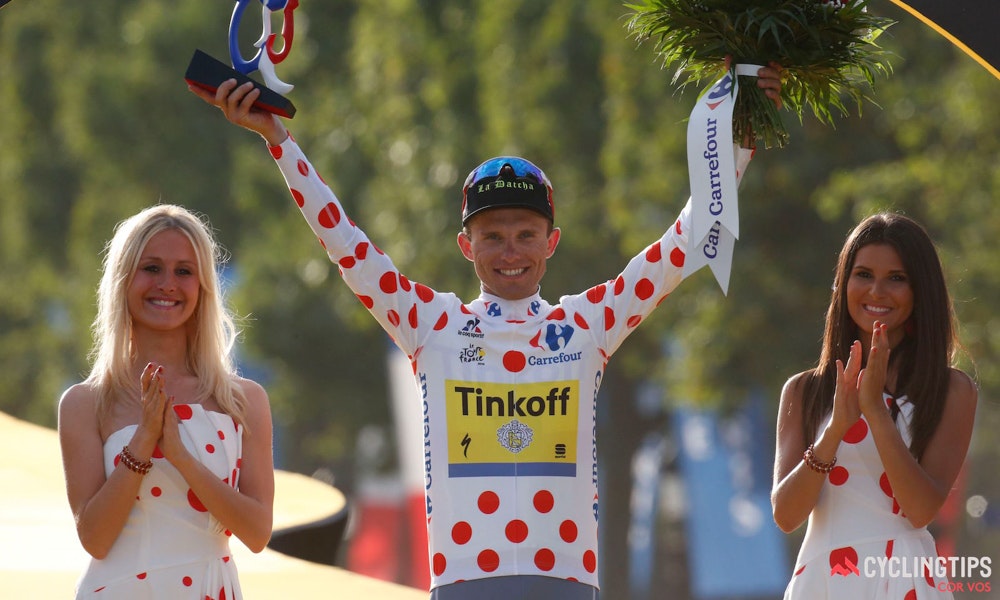
Philippe Gilbert (QuickStep Floors) is having his best season since 2011, highlighted by his Tour of Flanders win, and will likely be on the lookout for stage wins at the Tour too. He won a stage of the Tour de Suisse in a sprint, and might be tempted by the tough uphill sprints on stage 3 and stage 14. Expect to see him in the break deep into the second and third weeks too.
Much like Gilbert, Greg Van Avermaet (BMC) has had a stellar year, and much like Gilbert GVA is more the capable of winning stages at the Tour. The Belgian has won a stage at the last two editions and will have his eye on the tough uphill sprints, like Gilbert and sparring partner Peter Sagan.
Pierre Rolland (Cannondale-Drapac) will be in stage-hunting mode throughout the Tour, like he was at the Giro. At that particular race he took a strong win from the breakaway and will be hoping to replicate that feat in the mountains of the second and third week.

Rolland was ecstatic to win a stage of the Giro earlier this year. A Tour de France stage win would mean even more.
There are many other exciting riders to watch in the race.
– Tony Martin (QuickStep Floors): The four-time ITT world champion will be beyond keen to win the stage 1 ITT and take the yellow jersey on home soil.
– Emanuel Buchmann (Bora-Hansgrohe): Best young rider at the Dauphine and a good chance of repeating that performance at the Tour.
– Primoz Roglic (LottoNL-Jumbo): A genuine chance to win one or both of the race’s ITTs.
– Louis Meintjes (UAE Team Emirates): Very impressive at the Dauphine, eighth overall last year. Could do the same or better in 2017, plus will be targeting the white jersey.
– Edvald Boasson Hagen (Dimension Data): Showed good form recently at the Tour of Norway and Tour des Fjords. Good on tough uphill finishes.
Each stage of the race will be broadcast live, from the very start.
For the first time ever, fans of the Tour will have the opportunity to see every single kilometre of La Grand Boucle. Fans in Australia will be able to watch the race via SBS TV, streaming live on the Cycling Central website, and via the Tour Tracker app (Android, iphone and ipad). Broadcast details and times vary from stage to stage, so be sure to check out the Cycling Central website for more information.
Eurosport (Foxtel Channel 511) will also have live coverage of every stage of the Tour. Head to the Eurosport website for more info.
In the U.S. coverage will be found at NBC, NBCSN, and the NBC Sports Gold and NBC Sports apps. ITV will have live coverage in the UK.
As ever, be sure to check your local guides for up-to-date broadcast information. And if you’re following the race on Twitter, the hashtag you’ll need is #TDF2017.
Who do you think will win the 2017 Tour de France? And what are you most looking forward to?
This article was originally published on CyclingTips.
**Follow BikeExchange: [Email](http://www.bikeexchange.com.au/subscribe) | [Facebook](https://www.facebook.com/BikeExchange.com.au) | [Twitter](https://twitter.com/bikeExchange) | [Instagram](https://www.instagram.com/bikeexchange/) | [YouTube](https://www.youtube.com/user/BikeExchangeTV)**





